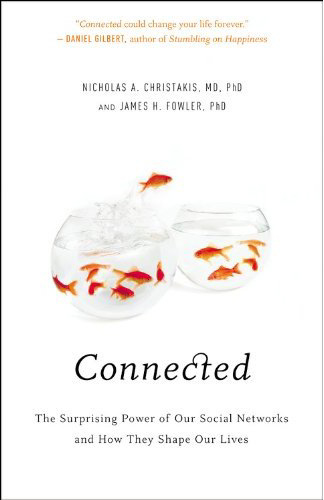 In my recent article “Can We Expect Other People to Help Us?” I mention the book Connected: The Surprising Power of Our Social Networks and How They Shape Our Lives by sociologist Nicholas Christakis and political scientist James Fowler. Connected is a fascinating work that examines social networks widely enough to provide a broad understanding and specifically enough to provide practical insights.
In my recent article “Can We Expect Other People to Help Us?” I mention the book Connected: The Surprising Power of Our Social Networks and How They Shape Our Lives by sociologist Nicholas Christakis and political scientist James Fowler. Connected is a fascinating work that examines social networks widely enough to provide a broad understanding and specifically enough to provide practical insights.
The questions Christakis and Fowler ask cover a lot of ground. How do social networks form and change? Why do we have them? What’s the difference between looking at the individual behavior of a number of people and looking at their social network? How is a network different from just a group or class of people? What does it mean to be closer to the center or the edge of a network, and why does that matter?
Christakis and Fowler show us a variety of networks and a variety of things that pass through them: money, illness, recovery, weight loss, smoking behavior, ideas, suicide, happiness, altruism, delusion, sexual behavior, and a lot more. They describe how we influence and are influenced not just by the people we know, but by the people they know, and even by the people those friends-of-friends know, our friends-of-friends-of-friends. (Interestingly, they offer substantial evidence that the influence more or less stops after those three degrees.)
The book has some limitations that are worth knowing about. Notably, they sometimes describe the impact of social networks as determining behavior instead of influencing it–for instance, saying that if a friend of a friend of yours gains weight, you will gain weight yourself (instead of saying, as is more accurate, that you will be more likely to gain weight). In some cases it sounds as though they feel that individual behavior has no impact on anything at all, though I don’t think that’s their intention.
Regardless, the book is often fascinating and offers a lot of meaning and food for thought. If you’re interested social networks, whether out of curiosity about how they affect you or out of interest in understanding human systems, it’s well worth a read.




